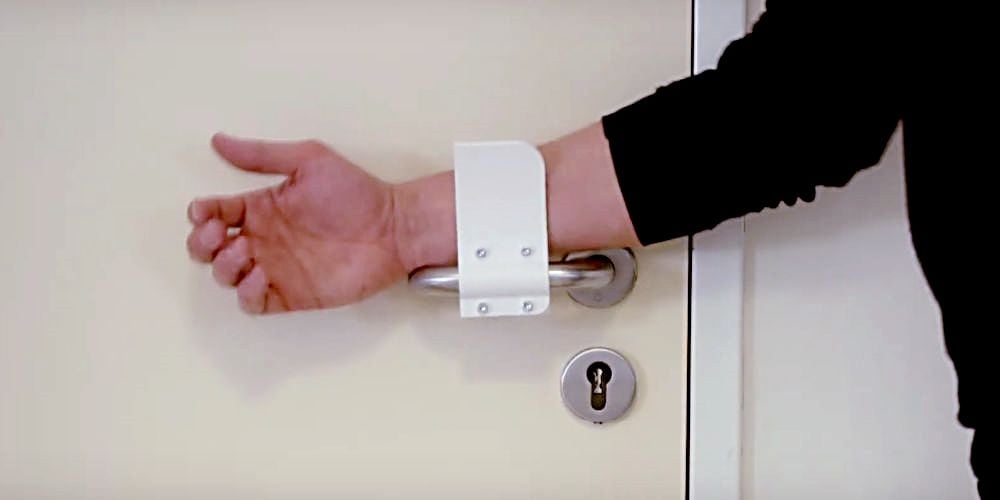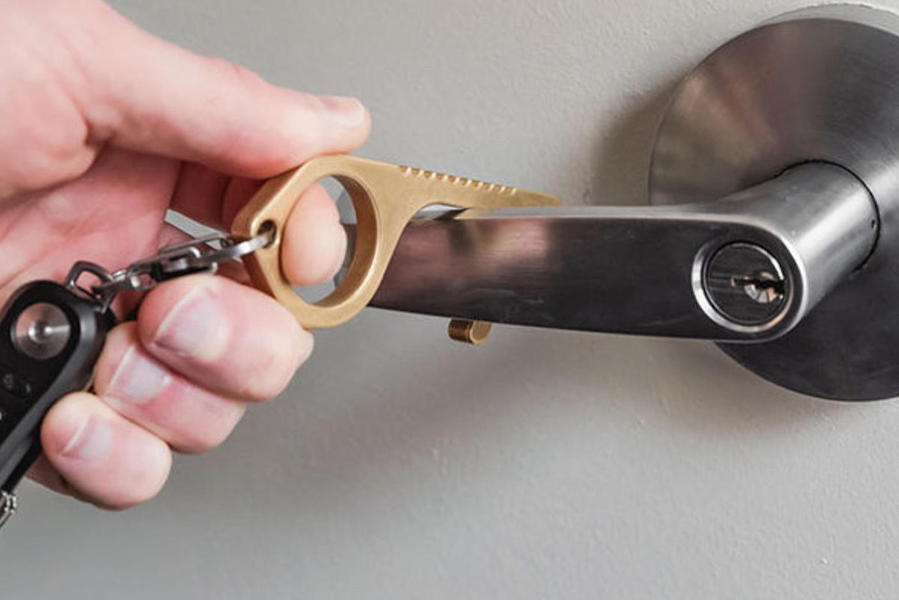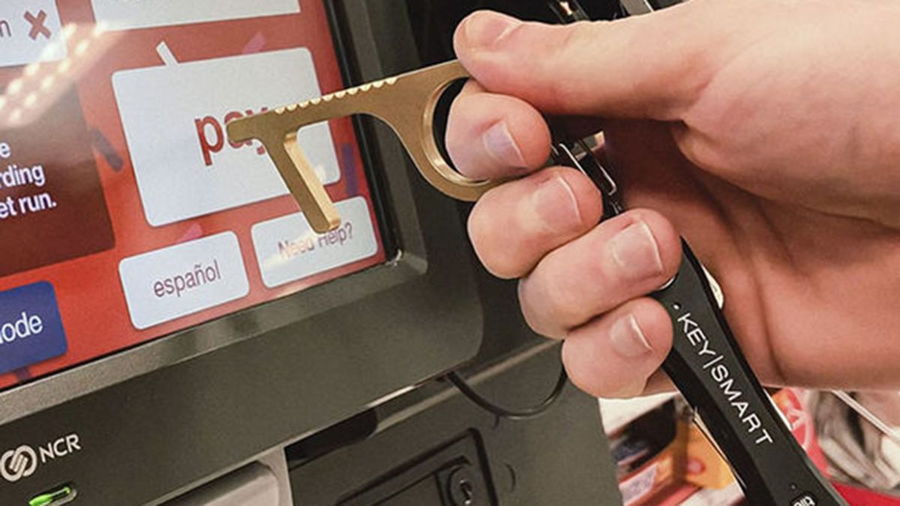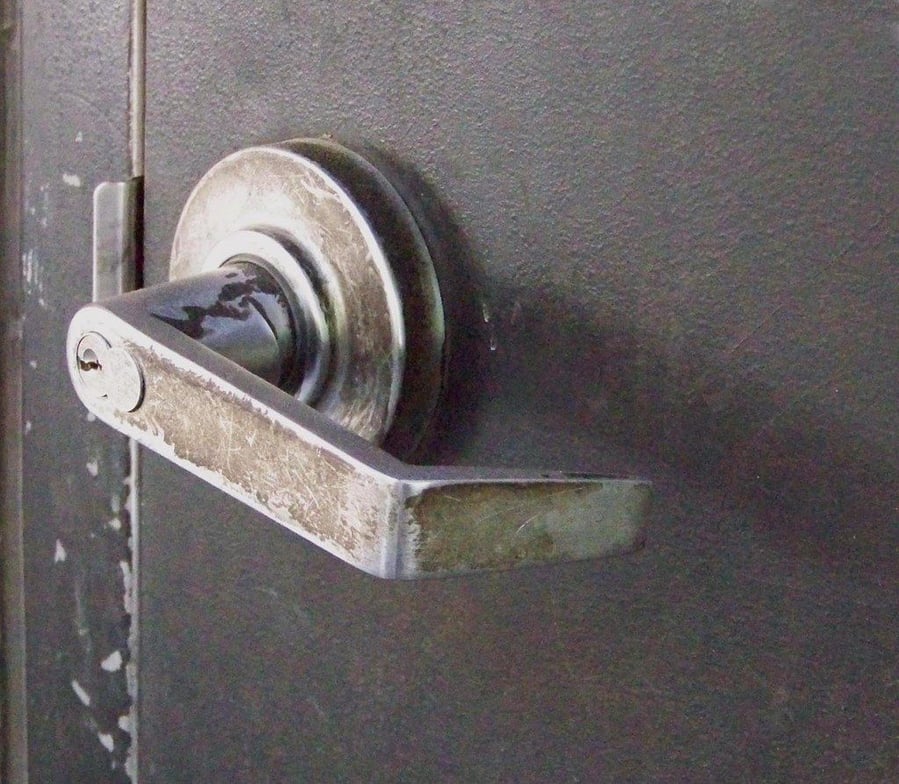COVID-19 Sparks New Innovations in Door Design
While people in many states are currently being mandated to wear face masks to help curb the spread of the novel coronavirus, touching things like elevator buttons and doorknobs continues to pose a major risk for infection. In fact, a study by the University of Arizona found that a single contaminated doorknob in an office can infect as many as half of the people there in just several hours.

While people have been aware of the dirty doorknob dilemma for decades now, the pandemic has motivated professionals from all kinds of fields to develop creative solutions that could revolutionize the ways we enter and exit rooms and buildings.
The CleanKey
Ziad Salah from Edmonton, Alberta was motivated by his personal situation. His wife is pregnant with their first child, and their older parents are at high risk for contracting the virus. He was following all the protective protocols, of course, but he still felt it wasn’t enough. He says that “it’s not enough to socially distance from being around people. You have to socially distance from things that are publicly shared, too.”

Working with his friends Abed and Ammar Shawar, Salah brainstormed possible solutions. They ultimately came up with a small key-shaped tool with a hook on the end that fits into any pocket and opens doors weighing up to 70 pounds without the hands ever making contact with a knob or handle. The CleanKey can also help you avoid hand contact with keypads and touch screens.

Although CleanKey is among an assortment of portable door-openers currently on the market, Salah and the Shawar brothers believe their curved hood design is more stable than those of their competitors — not to mention more competitively priced at $7. Salah explains that “we’re getting orders for five to six of them at a time, one for every member of a family, so we don’t want the total cost running to $100.”
Free for All
Instead of carrying a tool to open doors, engineers at Materialise (one of Europe’s largest 3D-printing operations) came up with a device that can be easily installed on existing door handles. Perhaps most impressively, it took them only three days to devise, produce, improve, and make public online printing blueprints for it.
Just to clarify, Materialise’s primary focus is the design and 3D-printing of medical equipment, so their aim was never to mass-produce the handles. Instead, they made the blueprints available free online so any individual or company with a 3D printer could use them to create their own. To date, over 100,000 blueprints have been downloaded, equal to around one-tenth of all 3D-printer owners in the world.
The “Less is More” Solution

Arjun Kaicker, head of workplace analytics and insights at London-based Zaha Hadid Architects, thinks voice-activated doors will someday be common. Until then, he suggests a much simpler answer to avoiding germy doorknobs.
“Meeting room doors are going to be propped open, and only if you have a meeting requiring absolute privacy will a person close that door with a handkerchief. And when people move into the offices straightaway, they might just take doors off meetings rooms and offices and put them into storage until things change.”




